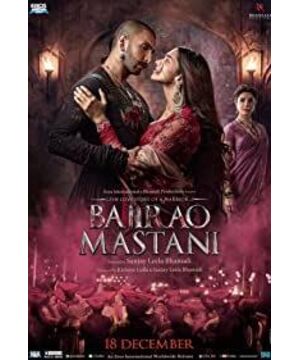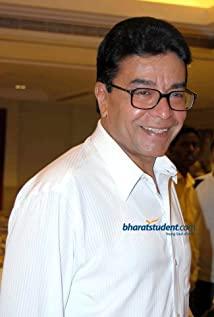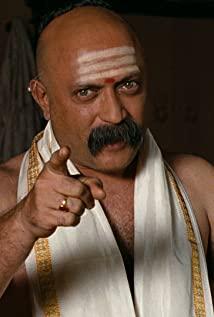The film tells the love story between Prime Minister Bagirao and the side room Mastani during the Shahu period of the ancient Indian Marathi Empire.
The king without the assistance of the prime minister is like the sun losing its light. Bagilao became the sun of the Maratha Kingdom during this period. He is a famous God of War in Indian history, he has fought 41 games in his life and has never been defeated. The classic line of the film: Never doubt the speed of the leopard, the perspective of the eagle and the sword of Bagillao.
Mastani is the princess of the Kingdom of Benderkand. The country was under siege and was facing destruction. She disguised herself as a soldier and asked for help from nearby Bagilao. After being rejected, she committed suicide and entered Bagilao's camp alone. Bhagirao was impressed by the woman's means and courage, and went to support the kingdom of Benderkand in distress.
On the battlefield, Bagillao beheaded the leader of the invaders and looked affectionately with Mastani, but the princess suddenly rushed towards him (because someone was about to attack). He thought that the principal would kill him and instinctively cut the princess. Only to realize that there was an enemy behind him.
In the Benderkand Palace, the princess does not want Bagilao to look at her wounds, and the Rajputs never show them to others. Bagilao opened the princess's clothes with a dagger and said: "For others, this may be the trauma of war, but for me, you are the moonlight bathed in color..." He directly burned the dagger with fire. To Mastani's wound, let the poison stop spreading.
"Mastani, I have seen your wounds. From now on, you are no longer a Rajput." But Mastani thinks that Bagillao saw only his own sword wounds, but he The heart is bleeding. Bagilao said: "Even Peshwar (the prime minister's position) has a heart." The seeds of love are planted by giving Mustani the dagger that is close to him. In Benderconde, a man's giving a dagger meant a marriage proposal, and the princess accepted it, but Bagillao didn't know the custom.
When Bagilao left, everyone came to see him off, except for Mastani. Others mistake love for arrogance, and let her watch him leave to kill her. What is left of an incomplete meeting is mutual promise.
The princess proposed to marry Bagirao, but the queen disagreed. Because one is Muslim and the other is Hindu, their union will not be recognized by the society. But for true love, the queen compromised. Mastani waded through the mountains to find Bagilao. However, Bagillao's mother and younger brother arranged to live in a brothel and act as a dancer in the Palace of Mirrors. This dance astounded everyone and conquered Bagirao's heart.
Mastani asked for Peshva in front of the king. The king did not blame her, but only told her to leave. Bagilao who was present fully understood her purpose. In the evening, Bagillao rode the wind and waves to meet Mastani across the river in the storm, and accepted him as her wife. Their conversation was touching:
"Even if this love, society will never accept you, love me, it will be as above Sword Mountain, Fire." "I accept."
"I have only one wife, and that is Kashgar." "I accept."
"Kashgar will always be my wife, and I can never belong to you alone." I accept it."
"Persistence in
putting my surname on you will only bring you shame." "I accept." Mastani became Bagilao's little wife, not recognized, and by Bagilao's mother. The younger brother was insulted and even assassinated. Because of his love for her, Bagilao ignored the main office, offended religion, offended his mother, turned against his younger brother, and even gave up the position of prime minister. He only hoped that the society would give her a position, but to no avail.
And Kashgar is not only Bagillao's wife, but also his friend and confidant. Their marriage has political interests and is stable. The love between Bagillao and Mastani is rare. True love cannot be measured by morals, but romantic love and real marriage are two different things. Kash loves Bagilao deeply, she endures it silently, loves humblely, and finds Bagilao to save her despite hesitation when Mastani is assassinated. As the film says, Mastani is the source of inspiration for Bagillao, and Kashgar is the source of his strength. Both of them are very important.
How much Kashgar hopes that he is Bagillao's beloved love, not his wife. No matter how deep the marriage is, the world will always remember the lover. And Bagilao never compares the two of them because there is no comparability between them. Kashgar said: "You can take my life, I will even give my life with a smile, but what you take away is my pride. I will never forgive you, but you are still my respected husband." Marriage It is realistic. The love between them has been replaced by reality and handed over to religion, children, politics and other interests to bind it. But the love between Mastani and Bagilao has abandoned all interest considerations, and even no longer pursues legal approval.
When Bagilao set out for the last time, his mother instructed Masani to be imprisoned and tortured. When he learned that his beloved was imprisoned, Bagilao ran towards the enemy alone in anger, invincible. After this victory, Bagillao fell down and was sick in bed since then, waiting for his lover in the cold wind, and fighting in madness until he died. At the same time, Mastani stopped her heartbeat in the tower. Finally, they are no longer hindered by religion and family, they are united and never separated.
The film discusses love and marriage. Masani is a junior in the current language, knowing that her love will not be accepted by the world, but she firmly wants to be with her lover and never wavered. Even if he was tortured, insulted, and lost his life, the flame of love has never been extinguished. Although this kind of love is immoral, its existence cannot be denied. The ending is still on the moral side. This kind of love that goes against religion and common sense will not be hindered only in heaven.
View more about Bajirao Mastani reviews











